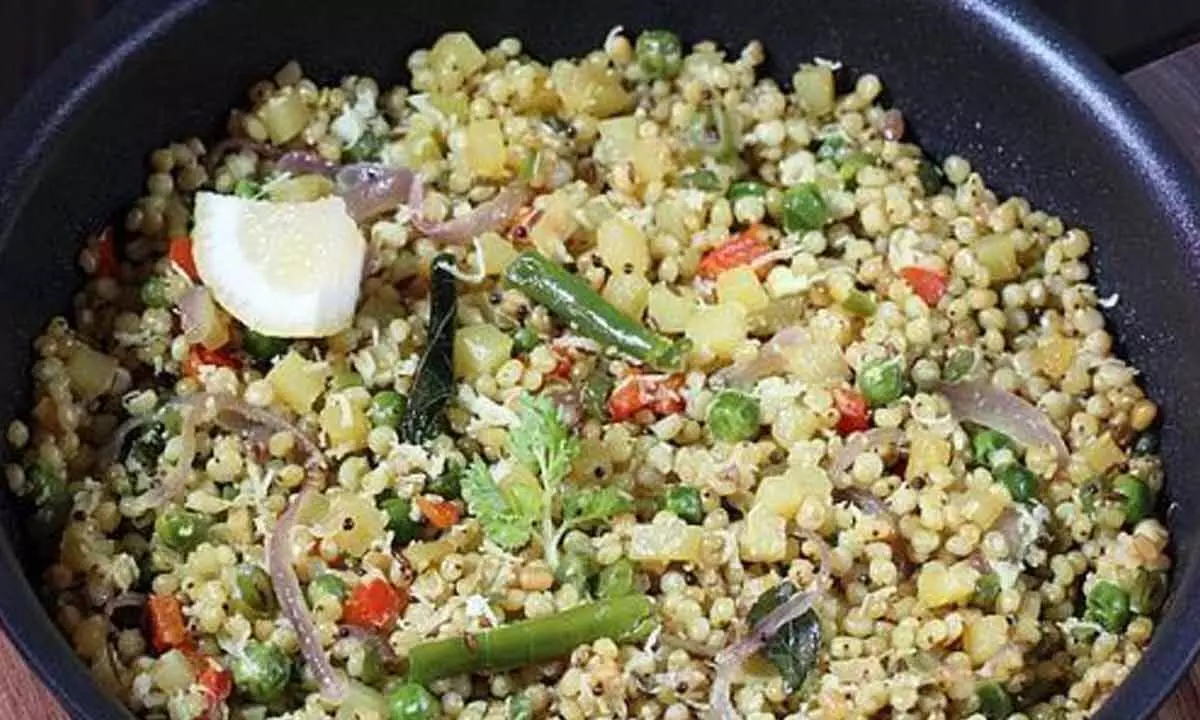Telangana ahead in adding millets to daily diet for target groups

Telangana ahead in adding millets to daily diet for target groups
- TS presents a set of good and innovative practices adopted by State governments and organisations in various aspects of millet value-chain, especially production, processing and consumption
- Initiatives taken up by the government covers children aged between 3 and 6 years, their mothers and community members
Hyderabad: There has been a significant increase in the consumption of millets in the target population groups in their daily diet in addition to supplementary nutrition in Telangana according to a report released by NITI Aayog on 'Promoting Millets in Diets: Best Practices across States and Union Territories of India.'
The report said that TS presents a set of good and innovative practices adopted by State governments and organisations in various aspects of millet value-chain, especially production, processing and consumption.
It said the initiative of Telangana had helped to revive consumption of millets and enhance the nutritional content of the Hot Cooked Meals served to children under ICDS, thus contributing to reduction in stunting, wasting, anaemia and underweight among target group.
This initiative covers children aged between 3 and 6 years, their mothers and community members and is implemented by District Administration, Vikarabad (2017-19) and Adilabad (2019-20) and with technical partner WASSAN (Watershed Support Services and Activities Network).
Introduction of Millets in SNP has helped in establishing the market ecosystem, engagement with food cultures as well as large-scale engagement with women on millet food, their nutrition value and recipes, it said.
Introduction of millets in ICDS has created a bulk demand by assuring procurement at scale and thereby stabilizing the market for millets. It has helped developing an ecosystem for millets by comprehensively focusing on production, trade, processing and so on. It has also helped in setting up of rural small industries for women SHGs/ entrepreneurs. Overall, it has placed a public system for millets, the report added.
Prevalence of malnutrition is reportedly high in tribal communities consuming undiversified diet particularly in Asifabad district (ITDA Utnoor), Bhadradri Kothagudem district (ITDA Bhadrachalam) and Jayashankar Bhupalpally district (ITDA Eturnagaram).
The program could achieve a renewal in millet cultivation to the extent of 4,401 acres in the target districts. One SHG group in Kumaram Bheem Asifabad district has started processing and packaging millets under their own brand. Eight food processing units in ITDA areas managed by tribal women-led Joint Liability Groups (JLGs) have been set up and 80 tribal women have turned into Nutrition Entrepreneurs'.
Among the 3-6 year olds, the Giri Poshana initiative recorded 16% decrease in wasting, 39% reduction in stunting, 37% in underweight and 41% decrease in anaemia among pregnant and lactating women.
With the success of Phase 1 and Phase 2 interventions in improving dietary diversity and nutritional outcomes, TS Tribal Welfare department and ICRISAT now planned to scale up the intervention to cover additional populations, to provide nutritional support to 16,000 PVTG members in the ITDA areas of Utnoor, Bhadrachalam and Mannanur.














